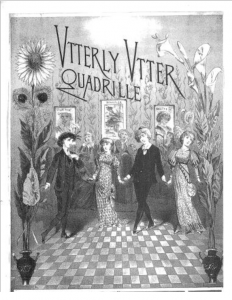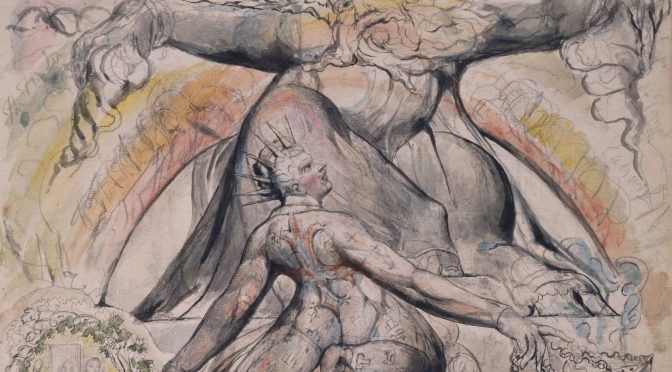By James Carney
Second-year English Literature and Classics student and Gale Ambassador James Carney reflects on ‘Tracing the Legacy of William Blake with British Literary Manuscripts Online’, his recent piece published in The Gale Review.
Writing this article on William Blake finally satisfied an itch that I held for quite a long time in the most effective way possible. Over the course of my studies, Blake’s name had hung in the background as some sort of enigmatic shadow that I would encounter later, when I was ready. In my A-Level English Literature class on Christina Rossetti and the pre-Raphaelites, his influence lingered but was never explicitly discussed. As I progressed to university, this ghostly influence became even more pronounced – from thematic parallels in works like J.M. Barrie’s to the shared cultural context of romanticism in studies of Wordsworth, I felt like I was gradually honing in on this mysterious figure. So, when Gale commissioned me to write an article using their British Literary Manuscripts Online, I knew exactly where my interest lay.
And this interest was met better than I could have ever imagined. While writing the article, I was working with primary sources related to Blake – first drafts of poems, rough sketches, the ‘Rossetti Manuscript’ itself! This gave me insight far beyond what I had previously fathomed my first engagement with Blake would ever have been. It was extremely personal and helped me to finally understand why this figure haunted so many texts that I had previously studied.
It also informed my studies going forward. As I ponder dissertation topics, I have so much better an understanding of trailblazing creatives like Blake who make for excellent research material. Furthermore, as I am currently studying the creative act of writing poetry, I have an appreciation for the barebones creation of some of the most famous Romantic poems from Blake’s notebook. I cannot over-emphasise the significance that this article has had for me, and I am so grateful to Gale for providing this opportunity.
Below is an extract from James’ article. The full piece can be found at https://review.gale.com/2022/02/01/tracing-the-legacy-of-william-blake/.
William Blake is widely considered one of Britain’s finest artists of all time. From painters of the Pre-Raphaelite Brotherhood to writers of the Irish Literary Revival, Blake’s influence permeates the artistic tradition. Therefore, it can come as a surprise to many that Blake’s work passed largely unrecognised during his lifetime. It is only posthumously that his legacy as we know it today has developed. This can be extensively explored using Gale’s British Literary Manuscripts Online: c. 1660-1900 archive.

Image with posters of artists whom Blake inspired. From: Eaton, W.G. “Utterly utter quadrille”, 19th century, British Literary Manuscripts Online https://lst.gale.com/blm/i.do?&id=GALE%7CMC4400003229&v=2.1&u=kings&it=r&p=BLM&sw=w&viewtype=Manuscript
(institutional access required to access link)
While too early to be a theoretical avant-garde, there persists a strong possibility that such a lack of success antemortem is attributable to the incongruity of Blake’s transgressive idiosyncrasy and the eighteenth-century Christian authority to which he belonged. However, this unique creativity and these distinctive perspectives have arguably contributed to his endurance in art as well as in politics. Scholars have frequently characterised Blake as sceptical of authority in all forms and this scepticism has marked him as influential to contemporary political issues.
For example, his opposition to rigid Christian marriages, forerunning the “free love” movement, has influenced modern ideas about sexual liberation, LGBTQ+ rights and feminism. Furthermore, his abhorrence of slavery and belief in universal equality demonstrates a concern for racial justice which resonates with the aims of our current Black Lives Matter movement. Clearly, the power of William Blake lies in his legacy, which it is now possible to trace using British Literary Manuscripts Online…
James Carney is a second-year English Literature and Classical Studies student at King’s College London, as well as a Gale Student Ambassador. Currently studying a range of writers, from Ovid to Shakespeare to Joyce, he is particularly interested in the evolution of the literary tradition and passionate about the integration of minority voices into it. Following his degree, he hopes to pursue a career in the civil service or (if he can pay the rent with it) creative writing. If you would like to follow James, his LinkedIn profile can be found here.
Blog posts on King’s English represent the views of the individual authors and neither those of the English Department, nor of King’s College London.
You may also like to read:

